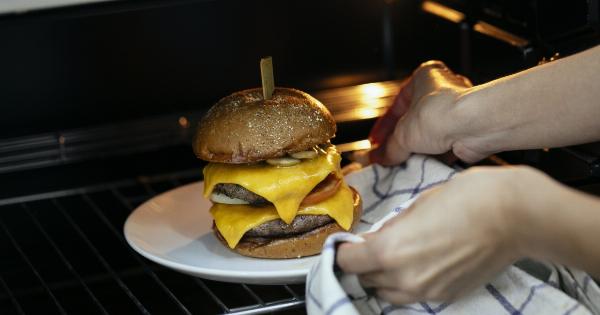Going for a fasting blood test can be a bit intimidating, especially if you’re unsure about what you should eat beforehand.
Fasting before a blood test is necessary to obtain accurate results, as certain foods and beverages can affect the levels of certain substances in your bloodstream. In this article, we will discuss what to eat before a fasting blood test to ensure the most accurate results possible.
Why is Fasting Required for a Blood Test?
Fasting before a blood test is essential because it helps to ensure accurate results. When you consume food or drinks, they are broken down and absorbed into your bloodstream.
This process causes various substances, such as glucose and lipids, to temporarily elevate in your bloodstream. By fasting, these levels are allowed to stabilize, providing a baseline measurement for your blood test.
How Long Should You Fast?
The duration of the fasting period depends on the type of blood test you are having. In most cases, a fasting period of 8-12 hours is recommended.
However, your healthcare provider will provide you with specific instructions regarding the duration of your fast. It’s important to follow these instructions closely to avoid any potential complications or inaccurate results.
What Can You Drink Before a Fasting Blood Test?
Generally, water is allowed before a fasting blood test. It’s important to stay hydrated, so you can drink water as needed.
However, it’s advised to avoid other drinks, including coffee, tea, soda, and juice, as they may contain substances that can affect your blood test results.
What Foods Should You Avoid?
Before a fasting blood test, it’s recommended to avoid certain foods to ensure accurate results. Here are some foods and beverages you should avoid:.
1. Solid Foods
Avoid consuming any solid foods during the fasting period. This includes all meals, snacks, and even chewing gum.
Solid foods can significantly affect your blood test results, so it’s important to refrain from eating until after your blood is drawn.
2. Sugary Foods and Drinks
Avoid consuming sugary foods and drinks, such as candy, desserts, and sweetened beverages. Consuming these items can affect your blood glucose levels, which might lead to inaccurate results in tests related to diabetes or glucose tolerance.
3. Alcoholic Beverages
It’s crucial to avoid consuming alcoholic beverages before a fasting blood test. Alcohol can interfere with liver function and affect certain blood parameters, leading to inaccurate test results.
4. Fatty Foods
Avoid consuming fatty foods, including fried foods, fatty cuts of meat, and high-fat dairy products. These foods can affect lipid levels in your bloodstream, which are often measured in cholesterol and lipid profile tests.
What Can You Eat Before a Fasting Blood Test?
While fasting, you can still consume certain foods that won’t affect your blood test results. Here are some options:.
1. Plain Water
Water is your best option for staying hydrated during the fasting period. It doesn’t contain any substances that can interfere with your blood test results, so feel free to drink as much plain water as you need.
2. Black Coffee
If your healthcare provider allows it, you can have black coffee without sugar or cream in moderation. However, it’s best to confirm with your healthcare provider beforehand, as some blood tests may require you to avoid coffee altogether.
3. Herbal Tea
Herbal teas that do not contain any sweeteners or additives can also be consumed. These include options such as chamomile tea, peppermint tea, or green tea.
However, it’s best to check with your healthcare provider to ensure that you can consume these teas before your blood test.
4. Medications
If you take any medications regularly, check with your healthcare provider to determine if it’s safe to take them before a fasting blood test. In most cases, medications can be taken with water, even during the fasting period.
Things to Remember
Here are some important things to remember when preparing for a fasting blood test:.
1. Read the Instructions
Follow the instructions provided by your healthcare provider regarding fasting duration and dietary restrictions. These instructions will ensure accurate results.
2. Stay Hydrated
Drink plenty of water during the fasting period to keep yourself hydrated. Dehydration can make it difficult for your healthcare provider to draw blood.
3. Be Prepared
A fasting blood test can sometimes lead to lightheadedness or dizziness. To prevent this, consider having a snack or meal planned for after your blood test appointment.
Conclusion
Fasting before a blood test is crucial to obtain accurate results. Remember to follow the instructions provided by your healthcare provider regarding fasting duration and dietary restrictions.
Avoid solid foods, sugary foods and drinks, alcoholic beverages, and fatty foods before your blood test. Instead, opt for plain water, black coffee (if permitted), herbal tea (if permitted), and any necessary medications. By adhering to these guidelines, you can ensure the most accurate blood test results possible.






























